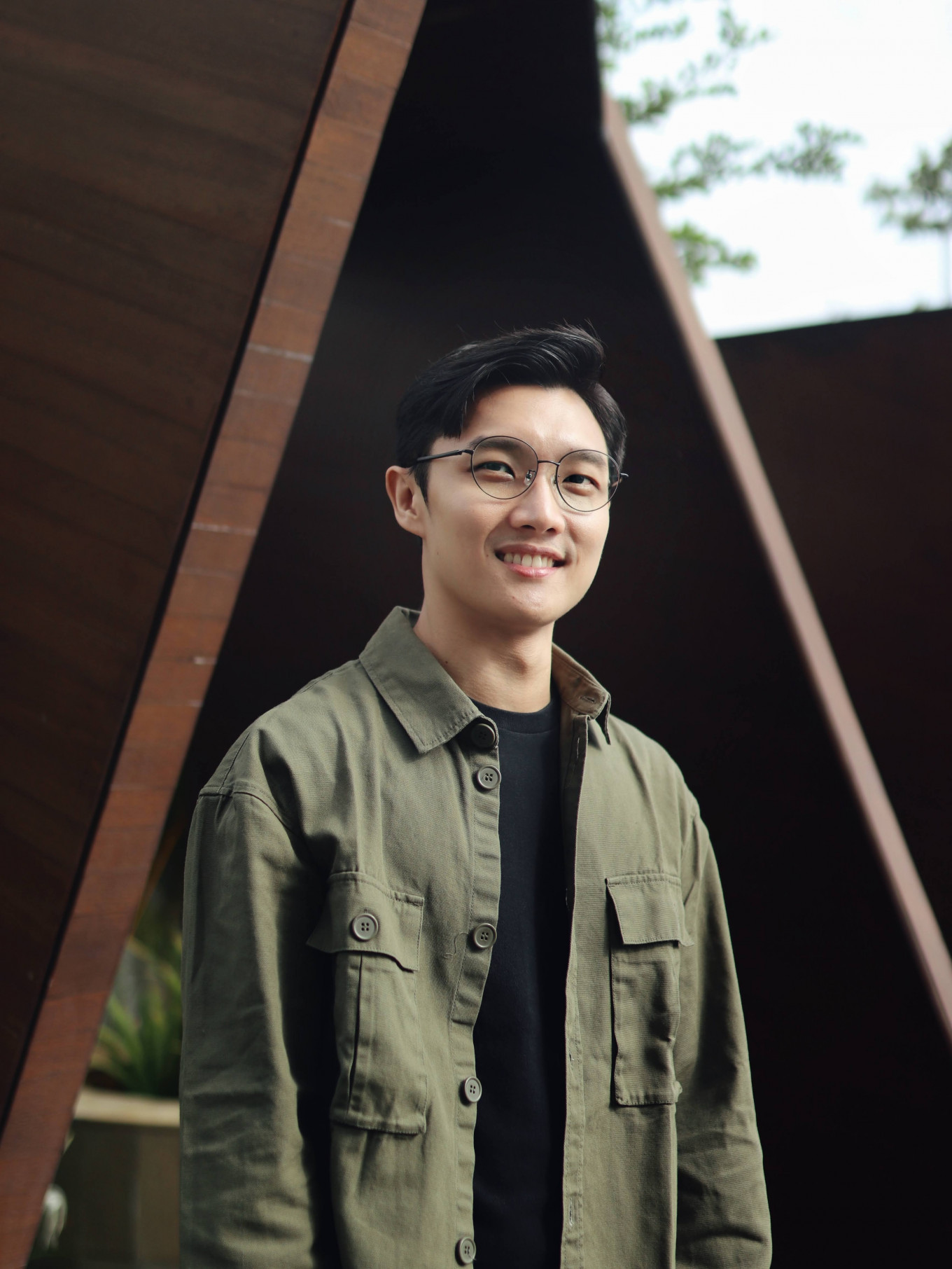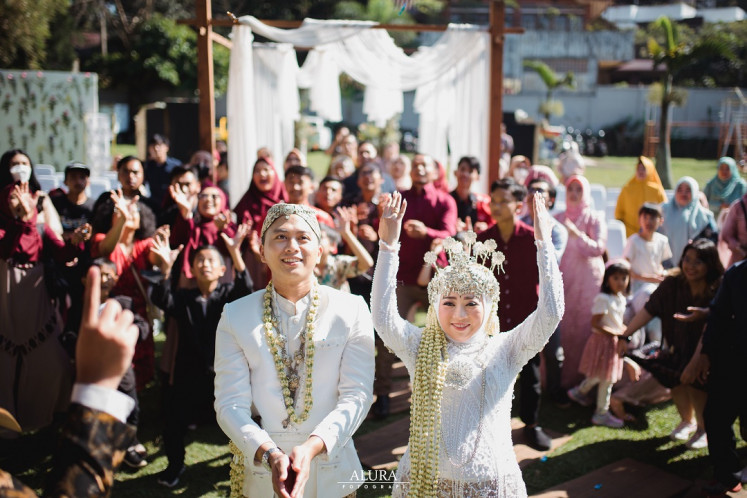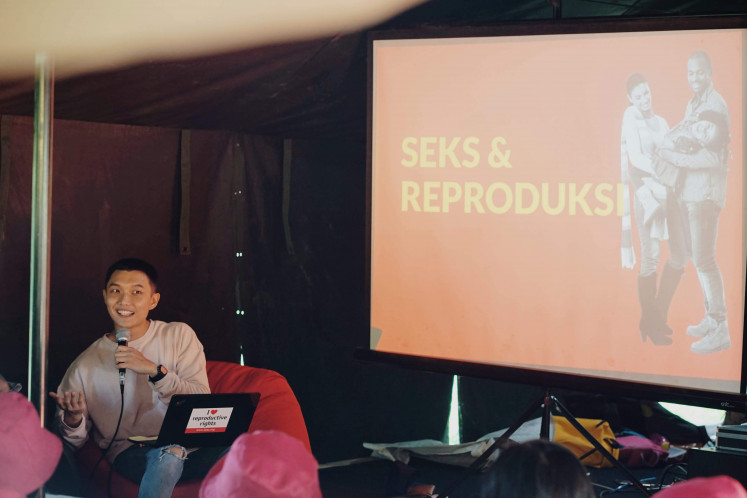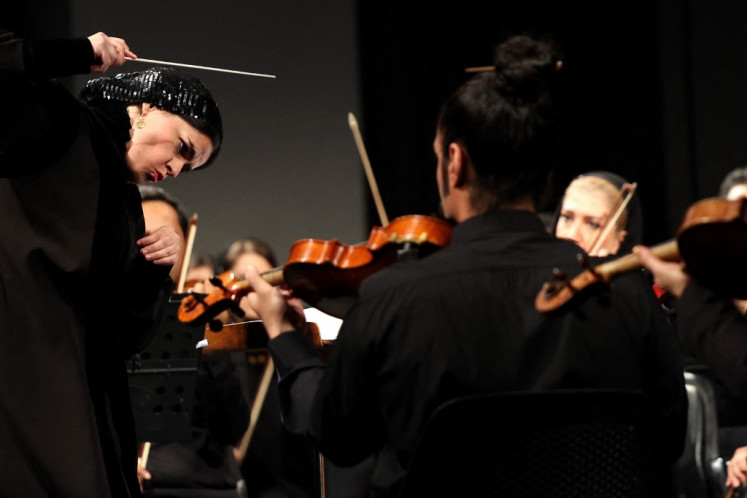Popular Reads
Top Results
Can't find what you're looking for?
View all search resultsPopular Reads
Top Results
Can't find what you're looking for?
View all search resultsWhat I've Learned: Sam Olam, Human Rights Activist
There are some people you meet who are simply operating on a higher plane of decency, grace, and thoughtfulness than the rest of us. Sam Olam is one of them.
Change text size
Gift Premium Articles
to Anyone
W
hat I've Learned is a column that presents candid interviews with policymakers, artists, activists and businesspeople on facing challenges and making a difference.
There are some people you meet who are simply operating on a higher plane of decency, grace and thoughtfulness than the rest of us. Sam Olam is one of them. His views and compassion are magnetic, which is why it is so difficult to understand how he keeps such a low profile.
See, Sam works behind the scenes, influencing from the inside. You will never catch him demonstrating in front of the House of Representatives or the Hotel Indonesia Traffic Circle. But if you are interested in the idea of effectively using the intricacies of inserting language into guidelines and technical assistance as an entry point for advocacy, Sam is your guy.
In this interview Sam, who has a medical degree, a master’s in public health and has worked as a consultant with every big-name organization you can think of, from the World Bank and the World Health Organization to Ipas and the United Nations Population Fund (UNFPA), shares his thoughts on reproductive health, activism and human rights and talks us through the way he contributed to the development of guidelines for maternal health care, health systems strengthening for postabortion care, dissemination of reproductive health information to young people and why it is so important to adopt a human rights approach to health.
No information. No contraception. No abortion for unintended pregnancies. What can young people do?
Access to reproductive health information and services is important, especially for young people. Under the law now the minimum age for marriage is 19 years old.
But government data show that young people start having sex by the age of 15 or 16. They are getting younger and younger. More importantly, 16 percent of women and girls aged 15-19 who have had sexual intercourse reported having had an unwanted pregnancy. But comprehensive sexual and reproductive health information has not reached all young people. Also, family planning service is provided only for those who are married, while it’s actually the foundation of maternal health and reducing maternal mortality, also a key to ensuring every individual can live to their best potential by deciding when to have children.
You’re talking about stunting or maternal and newborn mortality, which are related to adolescent pregnancy, but increasing the age for marriage doesn’t fix the root of the problem.
To promote health, you have to give women and men power, through choice and information. In Indonesia, choices are not always available. Even when they are, the information is not well provided or accessible.
You can’t report to the police if you get scammed when trying to purchase abortion pills.
Given Indonesia’s restrictive laws on abortion, many women with unintended pregnancies seek unsafe ways of ending their pregnancies. In recent years, growing businesses on digital marketplaces have opened an avenue for women to access abortion pills. But sadly, with their limited understanding, they are often taken advantage of. More than 50 percent of online sales of abortion pills end up a scam. Confused and scared, those women can’t even complain to anyone.
Urgency: Sam says that government data is showing that young people start having sex by the age of 15 or 16. (Courtesy of Sam Olam) (Archive/Courtesy of Sam Olam)I’m not radical. But I am fighting for something I believe in. I wish for a better world. But I am doing it in my own way – in my own approach.
I’m really intrigued by the term activist. Because people have different perspectives and definitions of the word. I wouldn’t call myself an activist if it means screaming and campaigning on the streets. Activists are everywhere. You don’t have to be in a circle of feminists. You don’t have to be in a grassroots organization. You can be an activist inside organizations like the UN and the World Bank, or anywhere else.
Once you are inside you can tweak conversations and navigate the bureaucracy. You can make changes. You can make changes from within.
We should pay more attention to adolescents. They cannot access sexual reproductive health information and services. Right now we are trying to make in-school comprehensive sex education mandatory but the fact is, it is optional, and most schools have not put it in their curriculum. it's not yet seen as a priority and the schools’ curriculum is considered already too full.
Comprehensive sexual education is tricky. You can have guidelines and curriculum but if the person delivering it doesn't have a good gender perspective it can actually perpetuate old stereotypes.
We put a lot of faith in influencers to get the right information out. That’s why at UNFPA, where I currently work right now, we’re trying to build a network with influencers and get more sexual and reproductive health information out there to give people more options and better choices. I learned from young influencers across the Asia Pacific and shared their best practices to encourage more people into digital sexuality education. One of them is Tabu.id, at which I sit on the advisory board.
Read the book Half the Sky.
The most effective activists work behind the scenes to have their language inserted into other legislative vehicles that are moving into law. Sometimes the most successful way to advance agenda items is through technical assistance opportunities and guideline production.
In 2018, I joined Ipas Indonesia, in a project that focused on the prevention of deaths due to unsafe abortion. As a health policy advisor, my work dealt with creating evidence and communicating that evidence to policymakers. I personally found the organization interesting, as they use technical assistance as an entry point for advocacy.
It was also interesting that, especially at the international level, most of the staff didn’t come from a health background, they’re feminists and activists from a diverse range of backgrounds. But this was new to me because in Indonesia most of the staff of public health programs have health backgrounds.
But from Ipas I learned to look at things from a human-rights approach. I joined their Global Advisory Team, and I was the youngest.
With a medical background, I tend to put safety, quality and standards first, but apparently, from the women’s point of view, access is really important. I am glad that the team welcomed opposing views and different perspectives.
Disagreements are allowed, but evidence is where we always come back to.












